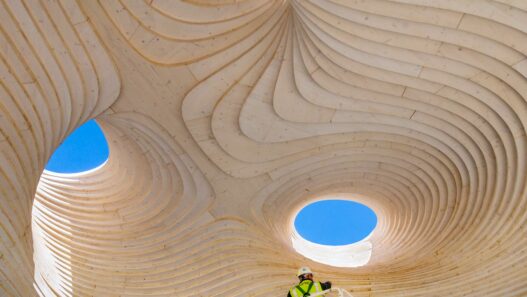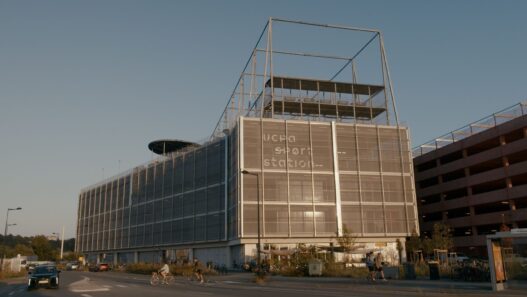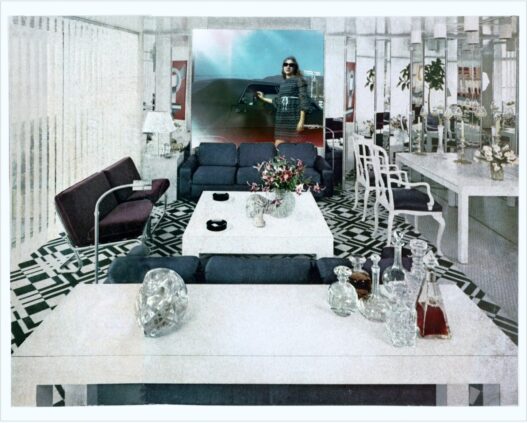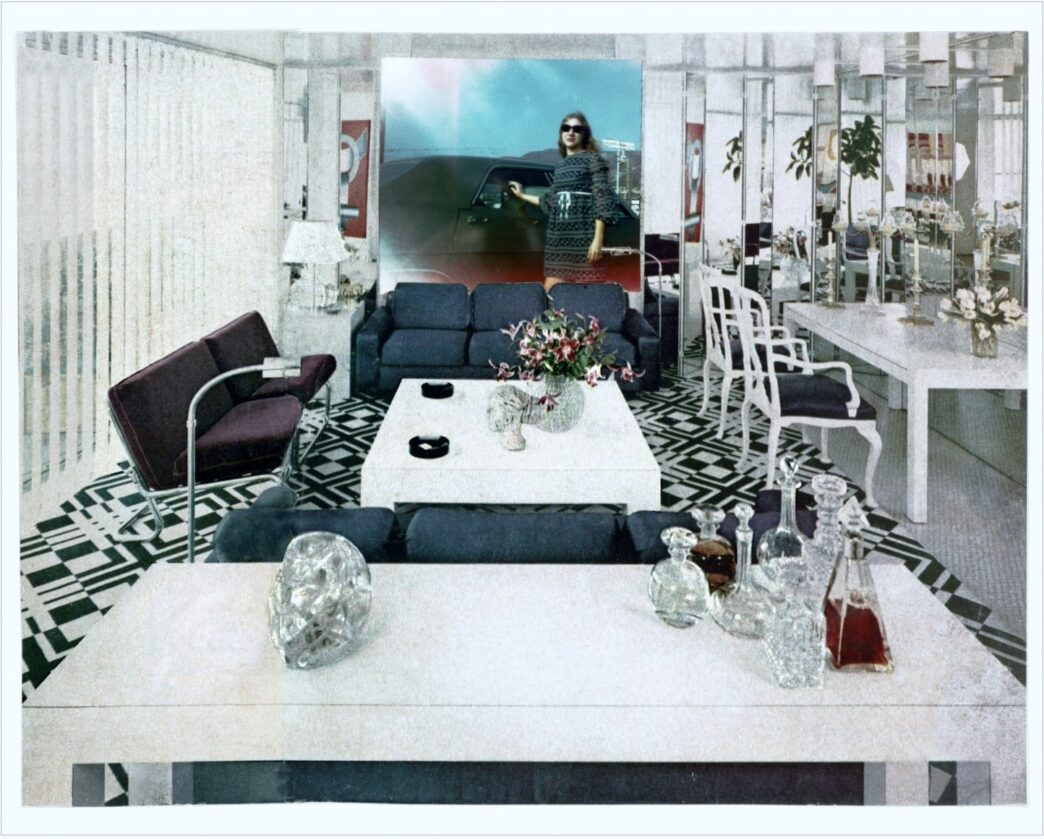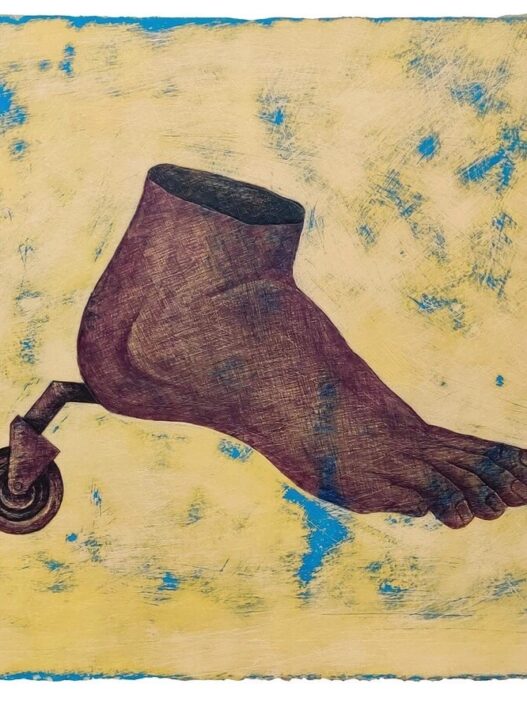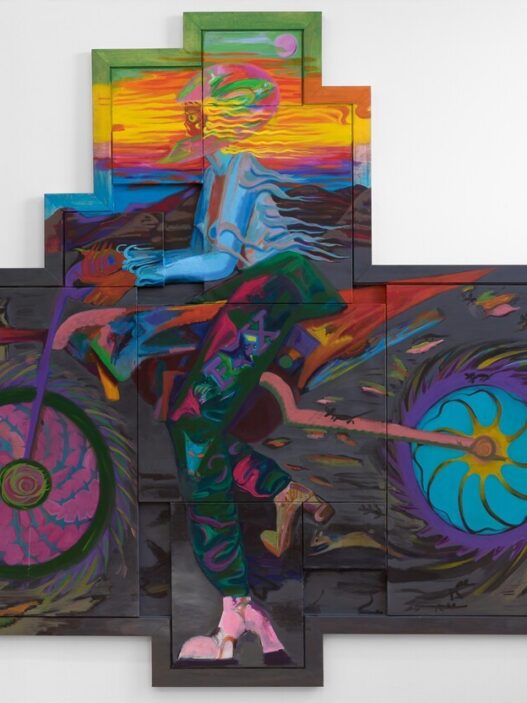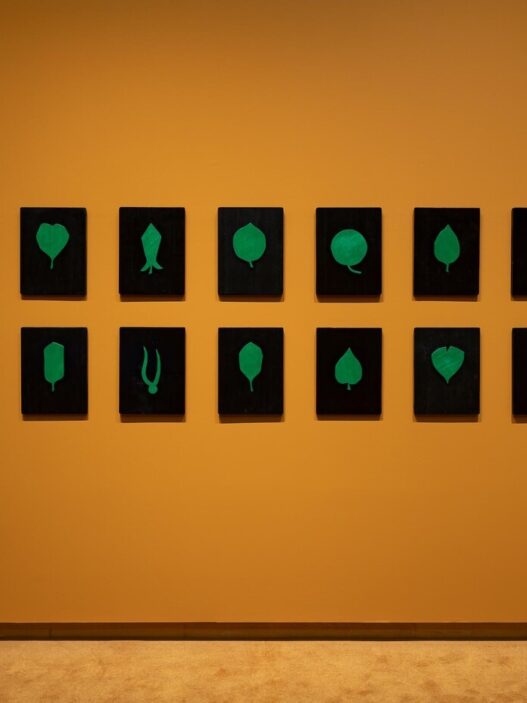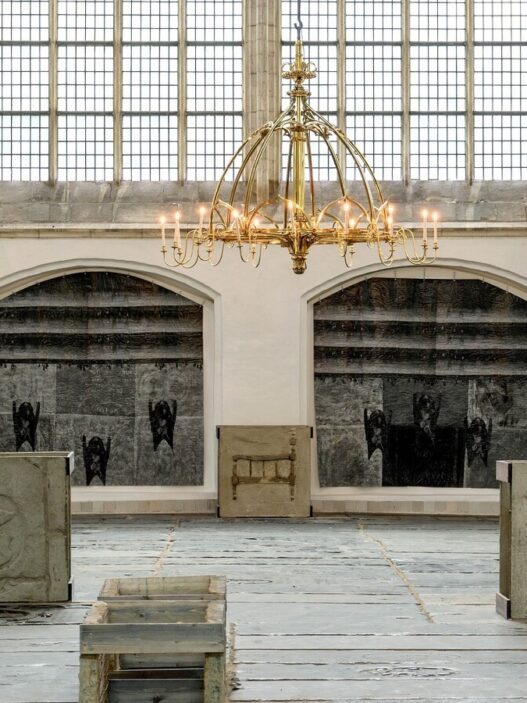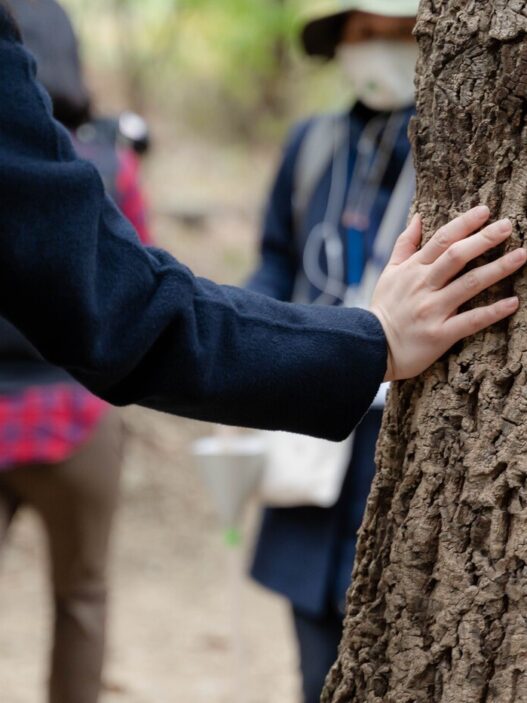Mitchell-Innes & Nash presents Martha Rosler: changing the subject… in the company of others, from December 8, 2022, through January 21, 2023.
This winter, Mitchell-Innes & Nash will host an exhibition of Martha Rosler’s feminist art from the 1960s and 1970s. Changing the subject, Martha Rosler… From December 8, 2022 to January 21, 2023, in the company of others will display photomontages, movies, and sculpture that expand knowledge of Rosler’s feminist landscape—one that feels increasingly relevant today. It is the artist’s first solo display in New York since her Irrespective exhibition at the Jewish Museum (2018).
The pieces on display at Mitchell-Innes & Nash illustrate a kaleidoscope approach to feminism and politics. To the persisting notion that political and feminist manifestations are distinct and unrelated, Rosler contends that what concerns women is inherently political, and that political art can and must be feminist.
The exhibition will include 31 photomontages from Rosler’s Body Beautiful, or Beauty Knows No Pain series, which he began in the mid-1960s in New York and continued in California until around 1972. The exhibition will showcase a selection of the preparatory constructions that underpin these pieces in order to highlight the simplicity of her method. These works, made mostly of glossy print ads and news, fashion, and home-making magazines, as well as some unexpected elements derived from the collage tradition, offer often-derisive criticisms of the demands and fantasies placed on women and girls. Rosler’s series House Beautiful: The Colonies (c. 1969-72), which focuses on Cold War space exploration pursued in dramatic conflict with the Soviet Union, will also be on display. Rosler combines extraterrestrial backdrops and moon-landing footage with earthbound sceneries and private interiors, implying that the American Dream’s corrosive poison will likely be extended when it colonizes the “next frontier.”
In addition to the framed photomontages, the show will contain a selection of works in various media that witness to Rosler’s concerns beyond the frame and, indeed, beyond the exhibition space as a form of dissemination.
Floor-mounted photos with an audio track (She Sees in Herself a New Woman Every Day, 1976) and soft sculptures made from a variety of domestic items, including secondhand clothing, well-used cloth diapers, and even miniature plants, are part of one body of work. Rosler’s soft sculpture, like collage, displays a Pop sensibility oriented on the consumerist “second nature” that came to dominate everyday life rather than the transcendent aspirations of abstraction, yet it ultimately harkens back to the surrealist obsession with obsolescence. Objects With No Titles (c. 1971-73), a sculptural collection of women’s undergarments stuffed to the brim with generic batting, allude to the never-ending quest to instill in women the urge to mould their bodies to definable norms. Rosler’s soft sculpture, in close proximity to the idealized forms portrayed in the apparel advertising in Body Beautiful, is a sharp critique of social attempts to constrain and bind the body.
This exhibition will include a dedicated screening space for a selection of films and videos from the 1970s to the present, including seminal videos Semiotics of the Kitchen (1975) and Martha Rosler Reads Vogue (1982), as well as Vital Statistics of a Citizen, Simply Obtained (1977), and Losing: A Conversation with the Parents (1977).
Rosler expanded her commitment with installation works in future years, as evidenced by a slice of her piece A Gourmet Experience (first staged in 1975). The piece, ostensibly about a woman’s desire to improve her culinary talents in order to feed her family and friends, engages with the complex discourse of high-end consumption and refined knowledge, with a heavy dosage of social status and colonial investigations.
Rosler’s Body Beautiful photomontage series was inspired by feminist lectures she heard while still a student in the mid-1960s. Women’s rights activists highlighted how commercials portrayed women as toys and other submissive playthings: “bedroom appliances,” as Rosler put it. These pieces represented Rosler’s ongoing engagement with what she saw as unacknowledged politicized depictions of women rooted in power and subjugation discourses. The pieces on display show Rosler’s commitment to feminist causes ranging from the objectification and control of women’s bodies to food politics, domestic labor, the service sector, and colonial appropriations.
Mitchell-Innes & Nash
534 W 26th Street, New York NY 10001
Tel 212-744-7400 Fax 212-744-7401




